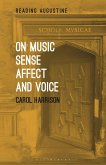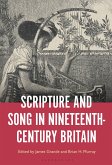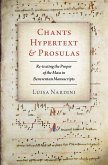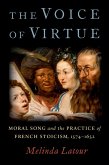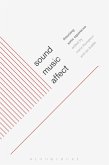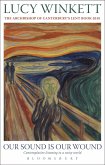This book explores early reflections on music and its effects on the mind and soul. Augustine is an obvious choice for such an analysis, as his De Musica is the only treatise on music by a Christian writer in the first five centuries AD; concerned not only with poetic metre and rhythm, but also with an ontology of music. Focusing on the six books of De Musica, the Confessions and the Homilies on the Psalms, Carol Harrison argues that Augustine establishes a psychology, ethics and aesthetics of musical perception, which considered together form an effective theology of music. For Augustine, music-both heard and performed- becomes the means by which we can sense and participate in divine grace. Composed by one of the world's foremost Augustine scholars, this book is a concise and powerful exploration of Augustine's writing and reflections on music and, by extension, the intimate relationship between music, religion, and philosophy.
Bitte wählen Sie Ihr Anliegen aus.
Rechnungen
Retourenschein anfordern
Bestellstatus
Storno



